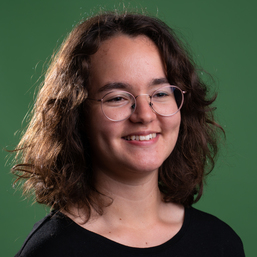 ZWART WIT KLEINER (1).jpg)
UvA lecturer writes book about poverty: “My mother is just focused on survival”
ISW lecturer Milio van de Kamp went to school in an underprivileged neighborhood in Amsterdam where the computers were chained to the wall. About growing up in a disadvantaged and poor environment, he wrote the book, Maybe you should aim a little lower.
Milio van de Kamp says: “In the house where I grew up, there wasn’t always enough money to pay the utility bills. Then the gas and light were cut off, so we couldn’t take hot showers, for example. After occurrences like this, violence between my parents became more frequent. Then I would go to school in the morning and had to pretend that everything was normal. For example, when we had to write papers, I was the only one in the class who turned in a handwritten paper - the rest could write it on a computer and turn it in printed out.”
“I was expelled from my first high school and ended up at a school for difficult kids in an underprivileged neighborhood in Amsterdam where I did the VMBO program. There, the foosball table was chained to the floor. The computers were attached to the wall with chains. The whole school radiated distrust of the students.”

“The only way I saw to escape poverty was to go to college. When I shared this with a teacher she said, ‘Maybe you should aim a little lower.’ As a teacher, she was the expert, I thought, so I trusted her in that. She would know what I could handle. But it cut into who I thought I was and thought I could become.”
“Despite her comment, I started getting an education anyway. I started with a VMBO program and I am now a UvA teacher. In the meantime, I also had a job as a youth worker, specifically helping young people with debt. I myself had problems with debt when I was 18, so that experience helped. At work, I was a textbook example of someone who had grown up in an underprivileged environment. Eventually, a journalist got wind of my story and asked if I would like to write a book about it. My first reaction was: Who would want to read a book about me? But after much thought, I wrote an autobiography, based on the comment: Maybe you should aim a little lower. I noticed that a lot is written about poverty, but rarely do you hear the story directly from the source, from someone who actually knows the experience of being poor.
“Besides, few people from my former milieu get the chance to write a book. How could it be otherwise? When I look at my mother, she is busy just surviving. She does not have the opportunity to tell her story, so it is not visible. On the news, you hear a lot of statistics about how many people are now falling below the poverty line. But you don’t read about the experience of being poor - people like me don’t write books. Poverty is so much more than a lack of money. It is a lack of power, reputation, confidence, and having your voice heard. The benefits affair is a good example of how less well-off people are treated.”
“But I do have that experience. And I’m also a sociologist. My book is a literary work - an autobiography about what it was like for me to grow up in an underprivileged environment. But I connect my experiences to sociological knowledge at the end of each chapter. There were institutional wrongs behind the situations I was in as a child, and realizing that was liberating. Cutting off families from energy should never have been allowed at all. It was not all my mother’s or father’s fault. But when it comes to poverty, the blame is often placed on the poor people themselves.”
“I also let my mother read some parts. At first, she was uncomfortable that I was writing this book. But when I showed her that it was not her fault that we had no electricity, I got her full support. Now she is especially proud.”
“Poverty is layered. You still read the story of poor kids in elementary school, but I want to show that poverty also marks your later life. Even if you get out, like me. There is still a gap between the world I move in now, and where I came from. For example, I never read books, unlike my fellow students. I only started reading when I went to college and only academic texts. Before I started writing my book, I read a lot of literature. Because I had no frame of reference, I didn’t know what different writing styles looked like. It’s kind of funny - a lot of people want to write and are looking for a story. I had a story, but didn’t know how to write it down.”

 ZWART WIT KLEINER (1).jpg)